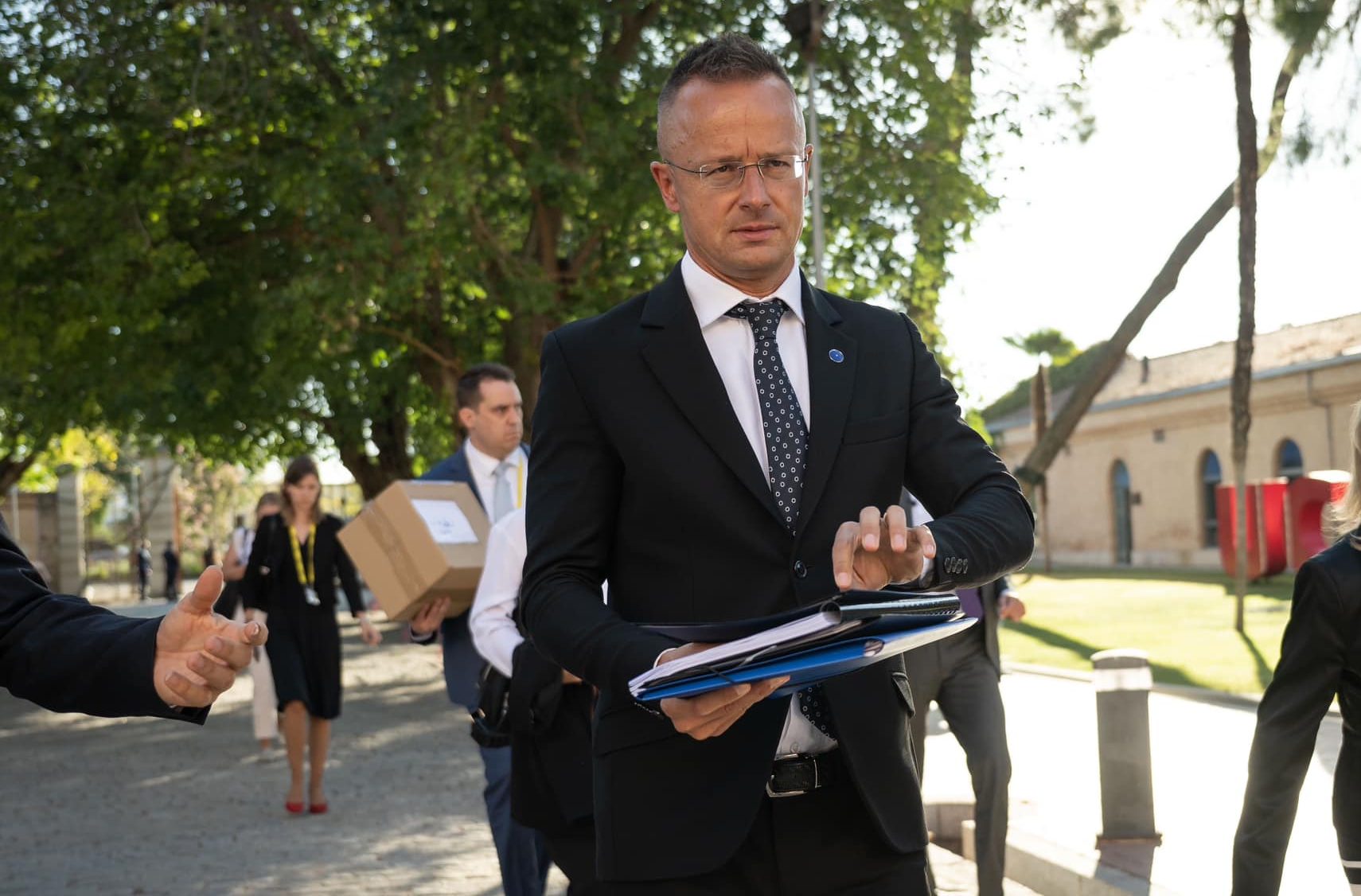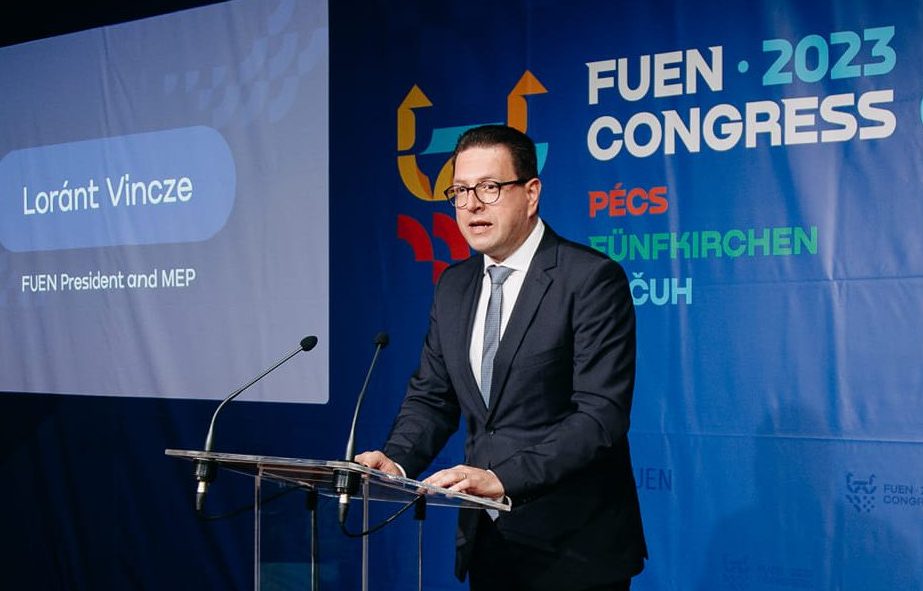
No further money is in sight for Ukraine until they return the rights of the Hungarian community in Transcarpathia.Continue reading

“The attacks on the education of minorities are an attack on the foundations of their identity. They are also an attack on democracy and the rule of law. We cannot duck away when we witness such practices,” said Loránt Vincze, MEP of RMDSZ, president of FUEN at the congress of Europe’s largest umbrella organization for the protection of minorities, held in Pécs.
Minority educational rights continue to be threatened by various challenges, budget cuts, and reductions in minority language school programs across Europe, he said, citing specific examples. In Poland, the number of German lessons in schools has been cut by a third; in Austria, educational rights are not enforced; and in Romania, the establishment of Hungarian schools is blocked by the courts in some cases.
In Ukraine, the planned education law essentially replaces teaching in minority languages with teaching in the state language, and it took great efforts by the international community, including FUEN, to delay the law’s entry into force by a year, Vincze noted.
The 67th FUEN Congress, which began Thursday, is the third meeting of European minorities in Hungary: it was held in Budapest in 1991, and in Pécs in 2008. In his opening speech, Vincze stressed the historical significance of the Budapest congress. “The national minorities of Central and Eastern Europe had high hopes for the fall of communism, and that was exactly the case in my home country, Romania. Unfortunately, it took only a few months for those dreams to be shattered. Our world did not change overnight, and in many countries small and large ethnic conflicts interrupted the supposedly rapid process of democratization.”
The opening of FUEN (Federal Union of European Nationalities) to the East took place in a special context, starting with the first congress organized in a former communist country. In the 1990s, the organization doubled its membership and played an important role in addressing and resolving minority issues in the region.
Unlike most states in the region, Hungary has pursued a minority-friendly policy from the very beginning.
It has created a strong and durable legal framework for the autochthonous communities living here by including national minorities, and has effectively supported the fate of millions of Hungarians living outside its borders by enshrining them in the Fundamental Law and governmental measures. Hungary’s openness to and support for European minority protection and common minority solidarity is therefore self-evident, the FUEN president said.
In his speech, Vincze also outlined the priorities for the next period, including strengthening the organization’s presence in all parts of Europe, supporting the participation of minorities in decision-making processes, combating hate speech, preventing attacks on minority education, and engaging young people.
This year’s FUEN Congress brings together representatives of 50 minorities from 26 countries. The three-day event is hosted by the Regional Self-Government of Germans in Hungary. The RMDSZ delegation at the 67th FUEN Congress will be led by Hunor Kelemen, president of the largest umbrella organization of Hungarians in Romania.
Via ma7.sk, Ungarn Heute ; Featured image: Potápi Árpád János Facebook